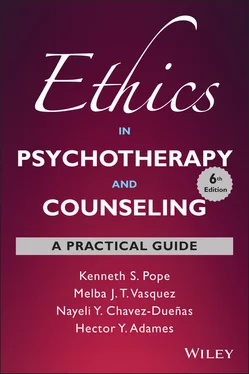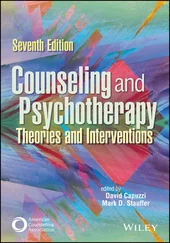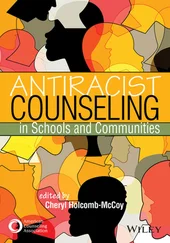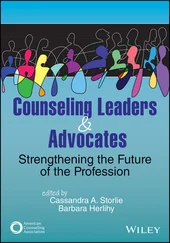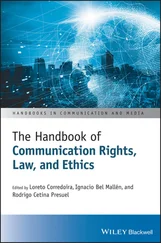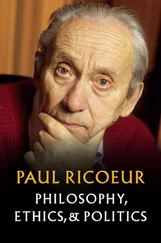Kenneth S. Pope - Ethics in Psychotherapy and Counseling
Здесь есть возможность читать онлайн «Kenneth S. Pope - Ethics in Psychotherapy and Counseling» — ознакомительный отрывок электронной книги совершенно бесплатно, а после прочтения отрывка купить полную версию. В некоторых случаях можно слушать аудио, скачать через торрент в формате fb2 и присутствует краткое содержание. Жанр: unrecognised, на английском языке. Описание произведения, (предисловие) а так же отзывы посетителей доступны на портале библиотеки ЛибКат.
- Название:Ethics in Psychotherapy and Counseling
- Автор:
- Жанр:
- Год:неизвестен
- ISBN:нет данных
- Рейтинг книги:5 / 5. Голосов: 1
-
Избранное:Добавить в избранное
- Отзывы:
-
Ваша оценка:
- 100
- 1
- 2
- 3
- 4
- 5
Ethics in Psychotherapy and Counseling: краткое содержание, описание и аннотация
Предлагаем к чтению аннотацию, описание, краткое содержание или предисловие (зависит от того, что написал сам автор книги «Ethics in Psychotherapy and Counseling»). Если вы не нашли необходимую информацию о книге — напишите в комментариях, мы постараемся отыскать её.
Ethics in Psychotherapy and Counseling: A Practical Guide
Ethics in Psychotherapy and Counseling: A Practical Guide
Ethics in Psychotherapy and Counseling — читать онлайн ознакомительный отрывок
Ниже представлен текст книги, разбитый по страницам. Система сохранения места последней прочитанной страницы, позволяет с удобством читать онлайн бесплатно книгу «Ethics in Psychotherapy and Counseling», без необходимости каждый раз заново искать на чём Вы остановились. Поставьте закладку, и сможете в любой момент перейти на страницу, на которой закончили чтение.
Интервал:
Закладка:
Ethical awareness means setting aside arrogance and complacency. All of us have weaknesses, vulnerabilities, and blind spots—it comes with being human. The stark differences are not so much between those with many flaws and those with few but between those who are freely open to themselves and others about how their own shortcomings affect their work and those who tend to hide such shortcomings and see others as their inferiors.
Ethical awareness depends on our ability to take care of ourselves, to recognize when exhaustion, personal problems, or feelings like fear, anger, boredom, resentment, sadness, hopelessness, or anxiety hurt our work, and to do something about it.
2. Awareness of ethical codes is crucial, but formal codes cannot take the place of an active, thoughtful, creative approach to our ethical responsibilities.
Ethical awareness is strengthened and informed by pouring over the ethics codes that bear on our work. But formal standards and guidelines 1are no substitute for an active, deliberative, and creative approach to our ethical responsibilities. Codes prompt, guide, and inform our ethical considerations; they do not shut it down or take its place.
Ethical awareness never allows us to follow a code in a rote, thoughtless manner. Each new client, whatever their similarities to previous clients, is unique. Each situation is unique and constantly changing—time and events never stand still. Our theoretical orientation, our community and the client’s community, our race and culture and the client’s race, culture, and so many other contexts and factors shape what we see and how we make sense of what we see. Each ethical choice must take these complexities and contexts into account.
Codes can steer us away from clearly unethical approaches. They can shine a light on key values and concerns. But they cannot tell us what form these values and concerns will take. Standards and guidelines can set forth essential tasks or point to aspirational goals but they never show us the best way to carry out those tasks and realize those goals with a unique client facing unique problems in a specific time and place with limited resources. Ethical decision-making is a process and codes are only one part of that process.
3. Awareness of laws is crucial, but legal standards should not be confused with ethical responsibilities.
A risk in the emphasis on legal standards is that meeting legal standards, which for some can mean finding ways around those standards (e.g., looking for loopholes), can start to replace ethical behavior. This practice is a high art in the political arena. Caught betraying the public trust, politicians often insist they did nothing wrong because no law was broken. When it turns out that a law was broken, politicians admit that their enemies are harping on a mere “technical violation of the law.” Ethical awareness avoids the comfortable trap of aiming low, of striving only to get by without breaking any law.
Ethical awareness stays alert to possible conflicts between our ethical and our legal duties.
An overly exclusive focus on legal standards discourages ethical responsibility. Practicing “defensive therapy”—making risk management our main focus—can cause us to lose sight of our ethical responsibilities and the ethical consequences of what we say and do. When we originally discussed this tendency to confuse legal and ethical issues over 30 years ago in this book’s first edition, the tendency had already begun to spread widely. It shows no signs of slowing down.
4. We believe that the overwhelming majority of therapists and counselors are conscientious, dedicated, caring individuals, committed to ethical behavior. But none of us is infallible.
All of us can—and do—make mistakes, overlook something important, work from a limited perspective, reach conclusions that are wrong, hold tight to cherished beliefs that are misguided or biased. We’re aware of many barriers between us and our best work, but we may underestimate or overlook some of those barriers. Part of our responsibility is to question ourselves: What if I’m wrong about this? Is there something I’m overlooking? Could there be another way of understanding this situation? Are there other possibilities? Can I come up with a more creative, more effective, better way of responding?
5. Many of us find it easier to question the ethics of others than to question what we ourselves value, believe, and do. It is worth noticing if we often find ourselves stewing over just how ethically weak, dense, or shady others are while sparing ourselves from critical self-assessment.
It is a red flag if we spend more time trying to point out other people’s weaknesses, flaws, mistakes, ethical blindness, destructive actions, or hopeless stupidity than we spend questioning and challenging ourselves in positive, effective, and productive ways that awaken us to new perspectives and possibilities. Questioning ourselves is at least as important as questioning others.
6. Most of us find it easier to question ourselves on those intriguing topics we know we don’t understand, that we stumble onto with confusion, uncertainty, and doubt. The harder but more helpful work is to question ourselves about our casual certainties. What have we taken for granted and accepted without challenge? Nothing can be placed off limits for this questioning.
Certainties are hard to give up, especially when they feel like they are part of who we are. They become landmarks, helping us make sense of the world, guiding our steps. But perhaps an always-reliable theoretical orientation begins distorting our view of a new patient, leading us to interventions that make things worse. Or having always prided ourselves on the soundness of our psychological evaluations, we keep rereading our draft report in a case in which an unbiased description of our findings may bring about a tragic injustice, harming many innocent people, and begin to wonder if our feelings for the client led us to shade the truth. Or the heart of our internship has been the supervision, and we’ve made it a point to tell the supervisor everything important about every patient, except about getting so turned on with that one patient, the one who is not very vulnerable at all and does not really need therapy, the one we keep having fantasies of asking out after waiting a reasonable time after termination and then, if all goes well, proposing to.
Questioning our certainties means actively and repeatedly seeking out and listening respectfully to those who disagree with us and engaging them in openly exchanging views. It means actively searching out articles and books that challenge—and sometime attack—our assumptions, beliefs, and practices.
We must follow this questioning wherever it leads, even if we venture into territories that some might view as politically incorrect or—much harder for most of us—“psychologically incorrect” (Pope et al., 2006).
7. We often encounter ethical dilemmas without clear and easy answers.
As we try to help people who come to us because they are hurting and in need, we confront overwhelming needs unmatched by adequate resources, conflicting responsibilities that seem impossible to reconcile, systems that work against the best interests of our clients, frustrating limits to our understanding and interventions, and countless other challenges. We may be the only person a desperate client can turn to, and we may be jerked every which way by values, events, limited time, and limited options. Our best efforts to sort through such challenges may lead us to a thoughtful, informed conclusion about the most ethical path that is in stark contradiction to the thoughtful, informed conclusions of a best friend, a formal consultant, our attorney, or the professional groups we belong to.
Читать дальшеИнтервал:
Закладка:
Похожие книги на «Ethics in Psychotherapy and Counseling»
Представляем Вашему вниманию похожие книги на «Ethics in Psychotherapy and Counseling» списком для выбора. Мы отобрали схожую по названию и смыслу литературу в надежде предоставить читателям больше вариантов отыскать новые, интересные, ещё непрочитанные произведения.
Обсуждение, отзывы о книге «Ethics in Psychotherapy and Counseling» и просто собственные мнения читателей. Оставьте ваши комментарии, напишите, что Вы думаете о произведении, его смысле или главных героях. Укажите что конкретно понравилось, а что нет, и почему Вы так считаете.
